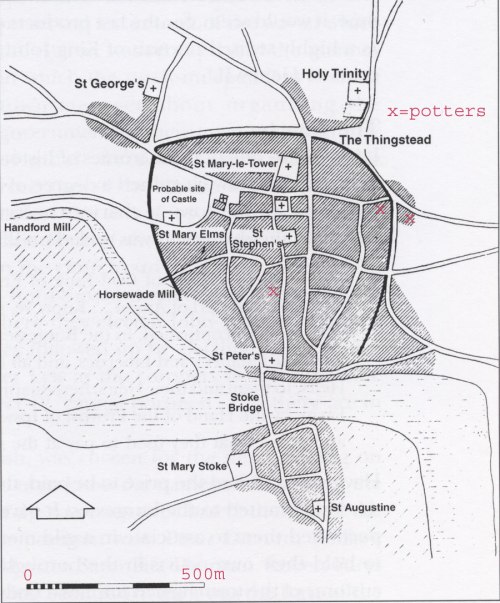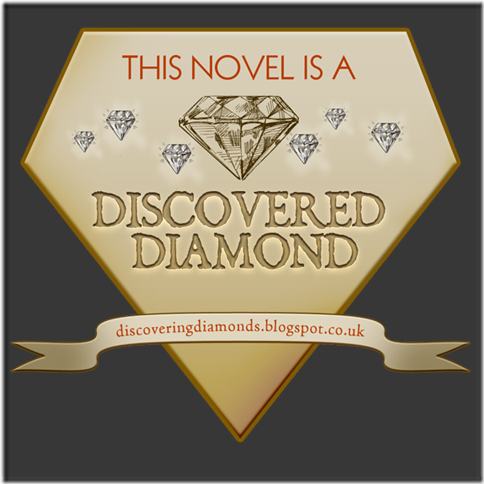When did you first start writing?
Well, I’ve always been a story teller, as far back as I can remember. Poetry has, from time to time, forced its way out through me too. But I first started writing my historical fiction as a result of my archaeology hobby. You see, I’d found this previously undiscovered Priory, which led me into relearning Latin, so I could read charters and documents written at the end of the 12th century, and figure out what was going on. Then this man called Wimer kept popping up, and his life-story became so compelling that I had to put it in book form. The Henry stories started when I was letting Wimer incubate between edits – I had a full-scale writing habit by then, and a void!
What are you working on next?
I’m working on the Wimer successor novel at the moment, where Wimer’s adopted son Jean takes on the might of the 13th Century establishment, to stop them killing the Priory that Wimer built. He also discovers along the way that he wasn’t meant for a vow of celibacy…
Then Henry is still demanding attention too, with the third volume of 3 stories due out. I shall try and save the next batch of stories until I’ve finished Jean’s novel, but Henry can be very insistent!
What is the greatest joy of writing for you?
I love the first draft, and the first edit, best. The first draft, because that’s when you find out what’s really going on in the story, and how far out your plot was – in my current story, I had a whole extra character elbow her way in! Then when the raw material is complete on the page, the first edit allows you to see how much better it could be, and to start shaping it into something finer.
What is your writing process?
I’m still developing my writing process. It is, of course, informed by a half-century of reading anything I could lay my hands on. I was surprised how classical a structure Wimer had, because I’d completely written that by the seat of my pants; Jean has been plotted, sort-of by the Snowflake method. I’m enjoying the challenge of that; I think I may continue to use that method for subsequent books as I’m learning this writing craft, because it gives me rules that support me whilst I’m learning and practicing nuance.
I use both copy and content editors, after I’ve had 4 or 5 passes through it myself!
When you’re not writing, how do you spend your time?
When I’m not writing, I’m either working (as a business improvement consultant, what a contrast to my other loves!), or doing something archaeological or historical. I’m working on a metal-detector survey of an 1,000 acre estate in Suffolk, plotting finds on a map so the data can be cut by time, by material, or by use; a fascinating project. You wouldn’t believe how much time I invest in finding stuff, washing it, reporting it to the Portable Antiquities Scheme, plotting it, doing show-and-tells to my landowners, researching finds… at least I’ve discovered that I can dictate into a little USB recorder that I sling round my neck, so I can write at the same time!
Do you remember the first story you ever read, and the impact it had on you?
I can remember being absolutely furious with my mother, because she tried to shorten a bed-time story. I wasn’t having any of that! I wanted full measure in my stories! I must have been around 2.
What do your fans mean to you?
My Henry fans are very opinionated, and I love them 😀 There’s nothing like a 7 year old describing in detail what he wants to read about next, to make writing worthwhile! That is, incidentally, another reason to self-publish – feeding that direct demand. If I went trad, that 7yo would be a different person by the time his request was published.
What motivated you to become an indie author?
I got fed up with agent after agent telling me my historical novels were good, but they’d just published something mediaeval… or it didn’t quite fit their list… or-or-or. If I knew what I was in for, I might have continued to send out query letters – the marketing is a real learning curve! But the Henry stories – written for around the 6-9 age range – are simple to produce, and I can get them into peoples’ hands very quickly and cheaply.
How do you approach cover design?
I am very lucky in that my elder daughter is a fantastic and professional artist, and is happy (for a suitable bribe) to do all my Henry covers.
I used a service called 99designs.co.uk for the Sheriff and Priest cover. I was very impressed indeed with the quality and range of covers on offer, and I’ll likely use the service again. The end result feels well worth the price paid.
Who are your support people?
I’ve already mentioned that my eldest daughter does my artwork, but my youngest daughter is crucial to Henry’s success too – she’s my editor in chief. I read each story out to her, and she somehow holds it in her head as a whole, and suggests tweaks, or different word choices – she’s good!
I also have a circle of friends who are my cheering section, and who are my alpha readers for the historical novels. These are people who are good enough friends to say “this bit stinks”!
Describe your desk
My desk is archaeological in nature – I think it’s pale wood, but I’m not sure, there’s too much stuff piled on it! That may be why I generally write in the lounge, on my laptop, to my favourite music; or on one of the notebooks I have in every handbag and pocket.
Who are your favorite authors?
I am in awe of authors like Hilary Mantel, Sherri Tepper, and Lois McMaster Bujold, all of whom are writing way above a level I can achieve at the moment. I’m trying to read their books to figure out how they’re doing it, but it’s taking a long time, because I keep getting sucked in!





